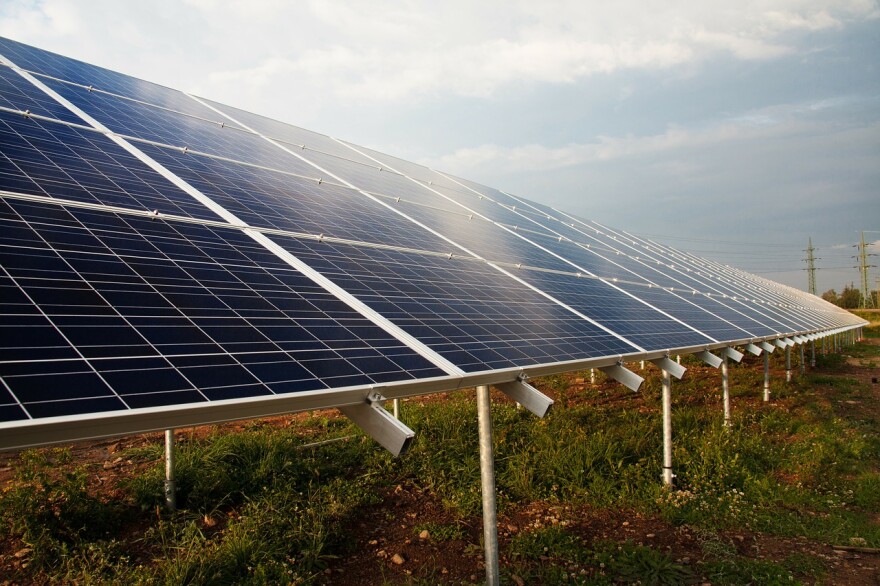Legislation introduced Wednesday in the Montana House would require officials to study how renewable energy generators, like solar panels, impact the utility bills of the people who don’t have them.
Solar panels can help trim down the utility bill of homeowners, but some say it shifts that cost onto other utility consumers who don’t have personal energy generators on their home. There’s no consensus on that.
A bill proposed by Zach Brown, a Democrat from Bozeman, "establishes a process which would initiate a study to gather that data that would support a rate case," he says.
If that study, done by utility companies, determines that people with solar panels pass on some of the financial burden of supplying electricity in Montana, it could mean those homeowners would have to pay more to offset that cost.
Brown’s bill would require a cost-benefit study when one percent of a utility company’s electricity sales come from power systems like solar panels.
David Hoffman, a spokesperson for NorthWestern Energy, Montana’s largest utility provider, testified against the bill.
“Frankly, it is not necessary," Hoffman said. "There is no need for a new law requiring a cost-benefit analysis trigger, or a separate classification of services for net metering consumers.”
Hoffman says state utility regulators can already do this kind of study without the one percent trigger point the proposed legislation is suggesting.
But, officials with Montana’s Public Service commission, which regulates companies like Northwestern, says that while the PSC can study utility rates, the details on this topic are a little murky.
Gary Forrester with Montana Dakota Utilities, which serves the eastern part of the state, also objected to the bill.
"We think this bill is premature," Forrester said, "MDU has a total of four net metering customers.”
Forrester says it could take MDU 30 years to reach the one percent trigger point required in the study.
NorthWestern Energy estimates it could take around 10 years for their company to reach that mark.
NorthWestern representatives have testified in previous hearings that their customers without solar panels are picking up some of the energy grid cost from solar panel users.
The utility company says power generated from solar panels isn’t as reliable as other sources like natural gas and coal, so they can’t plan on that energy being there. And that means that even though customers with solar panels find some savings by rolling back their meter, utility companies still have to maintain expensive infrastructure and can’t decrease the amount of power they plan on producing each year.
Andrew Valainis with the Montana Renewable Energy Association testified in support of the bill, but says that support hinges on a change in the bill, requiring Montana’s Public Service Commission, not Northwestern or other utilities, to run the cost-benefit study.
“We feel that the PSC conducting this study, as has been done in many other states, is a much better way to insure that this study would be unbiased and thorough,” Valainis said.
Other renewable energy advocates also tested in support of the bill, also suggesting the PSC conduct the proposed study rather than utility companies.
The House Energy, Technology, and Federal Relations Committee will vote on the bill within the next week.



